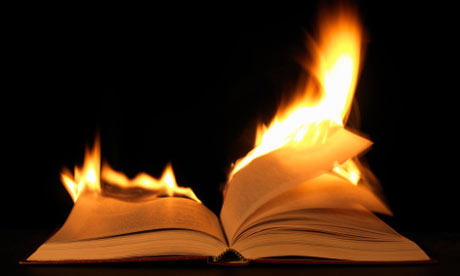With School Board elections less than a year away, it's a good time to start reminding ourselves why we need to get rid of many of our school trustees....
By: Moira Welsh and Kevin Donovan Staff Reporters, The Toronto Star, Published
Jun 21 2012
Here’s what taxpayers were charged for
work done at Toronto public schools:
Installing a $17 pencil sharpener: $143
to put in four screws.
The installation of a sign on a
school’s front lawn: $19,000
An electrical outlet on the wall in a
school library: $3,000
A “breakfast club” kitchen: $250,000
When the librarian at the electrical
outlet school saw the bill she hit the roof, wondering at “the number of books
that could have been purchased with $3000.”
A Star investigation has found examples
of charges that are out of whack with the amount of work done. The work in
question was carried out by some of the 900-strong maintenance and construction
trades people who have an exclusive contract with the Toronto District School Board. In the case of
the electrical plug, the job took four hours, but taxpayers were billed 76
hours, which sources say was done to account for the time of idle workers who
had no assignments that week.
Principals, trustees and parents say
that much needed work on Toronto’s aging schools is not getting done.
Principals were terrified of repercussions from their management and the union
and would not go on the record for this story. Some who have complained say
they have been threatened by the union with losing their jobs if they speak up.
Union boss Jimmy Hazel, when first
asked about these high costs two weeks ago, unleashed a stream of profanity at
a Star reporter.
“We don’t need to f------ prove
anything to anybody about costs,” Hazel said. “A s---load more work was done to
justify the cost of that plug job I can tell you.”
The TDSB’s chief facilities officer,
Angelos Bacopoulos, said in an interview that the board realizes they have a
serious problem.
“How widespread it is, I do not know,”
Bacopoulos said.
He is trying to fix the system, but
faces opposition from the union. The contract with the union expires this
August and negotiations will begin in September, a TDSB spokesperson said.
{Update: the Provincial Liberal government
went over the head of the Toronto Board and renewed basically the same
sweetheart deal with the same scuzzy unions.}
Each year, principals at the almost 600
public schools across Toronto submit requests to get work done. Under a
longstanding agreement with Jimmy Hazel’s Maintenance and Construction Skilled
Trades Council, almost all of that work must be performed by its members, who
are TDSB employees. Projects larger than $1.5 million, or those requiring
special skills, can only be done by companies whose workers are part of
affiliated unions.
Principals are given budgets for
repairs at their school and are asked to prioritize the work.
When the call came in early 2012 to
install a new electrical outlet in the library (the librarian wanted to plug in
a projector and create a new “learning space” for students) at Albert Campbell
Collegiate Institute in Scarborough, it seemed like an easy request. Since it
involved electrical work, union rules required two TDSB electricians to be
dispatched. The job, which involved attaching a plug to the library wall and
then running cable through the suspended ceiling to an electrical panel, took
two hours (four person hours in total).
TDSB emails show about $2,000 was
refunded to the school’s account after the principal complained.
A source with knowledge of this project
told the Star that the four person hour electrical outlet job was padded with
72 additional hours to justify paying the salary of other electricians who had
no work to do. The source also told the Star that Hazel has now determined that
he has too many electricians, and as many as seven have recently been laid off.
At the Toronto Catholic District School
Board, a school system about half the size of the public board, only 70 workers
are employed full-time. Other work is contracted out. Spokesperson Angelo
Sangiorgio said it would not “make sense” to employ more because there is not
enough plumbing or electrical work to keep trades people busy.
Another job the Star looked into
involved installing a pencil sharpener at Sir John A. Macdonald Collegiate in
2009. The school purchased the sharpener at Grand and Toy at a cost of $17.
Principals and custodial staff have
long been told that Hazel’s union must do the bulk of the work at schools. The
principal at the school, Rick Tarasuk, requested installation of the sharpener
and a crew was sent out by the TDSB. The sharpener has five screws. It was
installed with only four screws under a bookshelf.
Tarasuk was shocked at the cost and
raised the issue at a meeting of east end principals. TDSB director Chris
Spence was in attendance and vowed to have the charge reversed.
Later, when the Star asked Hazel why it
cost $143 to install the pencil sharpener, Hazel passed on TDSB emails that
labelled the charge a “clerical error.” Sources say Hazel then called school
Tarasuk and threatened to use his influence to have him fired. Hazel told the
popular principal he would do this by “going upstairs” to the school’s board of
directors. Hazel told the Star in an email this week that while “I can’t have
anyone fired,” he is going to talk to TDSB director Spence and complain about
Tarasuk because he thinks the principal’s conduct could rate “termination” in
most workplaces.
The TDSB has told the Star that it has
now sent a message out to school caretakers (who work for a different union) instructing
them that they may install pencil sharpeners.
And at the school board, this is what
they call progress.







